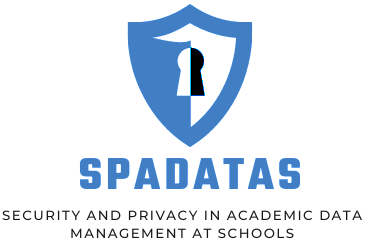10 Tips for Online Safety and Behavior
- Know Your Personal Information: Understand what constitutes personal information, such as your full name, home address, phone number, school name, and any other details that could be used to identify or locate you. Recognize the importance of keeping this information private and avoid sharing it indiscriminately online, especially on public platforms or with unfamiliar individuals or websites.
- Create Strong Passwords: When creating passwords for your online accounts, aim for complexity and uniqueness. Use a combination of uppercase and lowercase letters, numbers, and special characters. Avoid using easily guessable information like birthdays or common words. Additionally, ensure that you use different passwords for each of your accounts to minimize the impact of a potential security breach.
- Identify Unsafe Websites: Develop the ability to discern potentially unsafe or fraudulent websites. Look for indicators such as misspellings in the URL, lack of secure HTTPS connection (especially for websites requiring sensitive information like passwords or credit card details), excessive pop-up ads, or suspicious content. Avoid clicking on links from unknown sources or websites that seem questionable.
- Stay Aware of Cyberbullying: Educate yourself about cyberbullying and its various forms, including harassment, threats, impersonation, and spreading rumors or malicious content online. Be vigilant for signs of cyberbullying in your online interactions or those of your peers. If you experience or witness cyberbullying, know how to respond appropriately, whether by blocking the perpetrator, reporting the incident to the platform or website administrators, or seeking support from trusted adults or authorities.
- Manage Privacy Settings: Take advantage of privacy settings and controls offered by online platforms and services. Regularly review and adjust these settings to restrict access to your personal information, posts, and interactions to only those you trust. Understand the implications of each setting and customize them according to your comfort level and desired level of privacy

- Avoid Online Scams: Be cautious of online scams and phishing attempts designed to deceive you into revealing sensitive information or downloading malicious software. Exercise skepticism when encountering unsolicited emails, messages, or ads requesting personal or financial details. Look out for red flags such as promises of unrealistic rewards, urgent requests for information, or suspicious links. When in doubt, verify the legitimacy of the source through independent means before taking any action.
- Practice Respectful Online Behavior: Foster a culture of respect and kindness in your online interactions, treating others with empathy, courtesy, and consideration. Think before you post or comment, refraining from engaging in cyberbullying, harassment, hate speech, or other forms of online misconduct. Remember that your digital footprint can have real-world consequences, so strive to uphold positive and constructive communication standards in all your online engagements.
- Be Cautious with Downloads: Exercise caution when downloading files or software from the internet, especially from unknown or untrustworthy sources. Malicious downloads can contain viruses, malware, or other harmful programs that may compromise your device’s security or steal your personal information. Whenever possible, download content only from reputable websites and verify the authenticity of the files using antivirus software or online scanning tools.
- Speak Up About Inappropriate Content: If you encounter or witness inappropriate, offensive, or harmful content online, don’t hesitate to speak up and take action. Report such content to the relevant platform or website administrators using the provided reporting tools or contact options. Additionally, confide in a trusted adult, such as a parent, teacher, or school counselor, who can offer guidance and support in addressing the situation effectively.
- Be Mindful of What You Share Online: Think carefully before posting personal information, photos, or videos, as anything shared online can become permanent. Even if you delete a post, it may have already been saved, copied, or shared by others. Your data can be used without your consent in ways that compromise your privacy, damage your reputation, or even lead to identity theft and other security risks. Additionally, organizations, employers, and educational institutions often review digital footprints, meaning that what you share today could impact your future opportunities. Always consider the long-term implications before making any information public.
